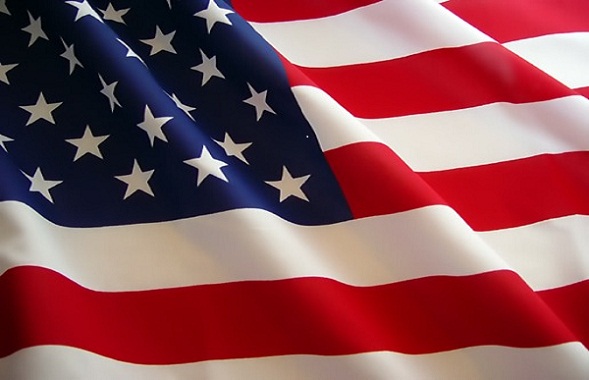Alternative News, Technology, Freedom and Liberty,Fighting the New World Order, Globalization is Slavery.
Student Loan Debt

Saturday, February 26, 2011
Pressure mounts on Libya's Gaddafi
Internal and international pressure is mounting on Libyan leader Muammar Gaddafi to stand down from power as protests continue against his 42-year rule.
Within the country, anti-government protesters said the demonstrations were gaining support, and footage believed to be filmed on Friday appeared to show soldiers in uniform joining the protesters.
The footage showed soldiers being carried on the shoulders of demonstrators in the city of Az Zawiyah, after having reportedly turned against the government - a scene activists said is being repeated across the country.
Al Jazeera, however, is unable to independently verify the content of the video, which was obtained via social networking websites.
Our correspondent in Libya reported on Friday that army commanders in the east who had renounced Gaddafi's leadership had told her that military commanders in the country's west were also beginning to turn against him.
They warned, however, that the Khamis Brigade, an army special forces brigade that is loyal to the Gaddafi family and is equipped with sophisticated weaponry, is currently still fighting anti-government forces.
Our correspondent, who cannot be named for security reasons, said that despite the gains, people are anxious about what Gaddafi might do next, and the fact that his loyalists were still at large.
Abu Yousef, speaking from the town of Tajoura, told Al Jazeera on Saturday that live ammunition was being used against anti-government protesters.
"Security forces are also searching houses in the area and killing those who they accuse of being against the government," he said.
Crackdown after prayers
Security forces loyal to Gaddafi reportedly also opened fire on anti-government protesters in the capital, Tripoli, after prayers on Friday.
Heavy gun fire was reported in the districts of Fashloum, Ashour, Jumhouria and Souq Al, sources told Al Jazeera.
The offensive came after Gaddafi appeared in Tripoli's Green Square on Friday, to address a crowd of his supporters.
The speech, which also referred to Libya's war of independence with Italy, appeared to be aimed at rallying what remains of his support base, with specific reference to the country's youth.
An earlier speech, on Thursday evening had been made by phone, leading to speculation about his physical condition. But the footage aired on Friday showed the leader standing above the square, waving his fist as he spoke.
In the rooftop address Gaddafi urged his supporters below to "defend Libya".
"If needs be, we will open all the arsenals. We will fight them and we will beat them," he said.
International condemnation
The eastern region of the oil-rich North African nation is now believed to be largely free of Gaddafi control since the popular uprising began on February 14, with protests in the city of Benghazi inspired by revolutions in Egypt and Tunisia.
Al Jazeera's Hoda Abdel-Hamid, reporting from the town of Al-Baida in eastern Libya on Saturday, said that while many parts of the country's east is no longer government controlled, local residents do not want to separate from the rest of Libya.
"They still want a united Libya, and want Tripoli to remain its capital," she said.
Our correspondent added that many in the country's east have felt abandoned by the Gaddafi government, despite the vast oil wealth located in the region, and they feel they have no future in the country.
Hundreds of people have been killed in a brutal crackdown on the protests, though the official death toll remains unclear.
The crackdown has sparked international condemnation, with Nicolas Sarkozy, the French president, becoming the first world leader to openly demand Gaddafi's ouster.
Meanwhile, as Western governments scrambled to craft a collective response to the unrest, the United States said it was moving ahead with sanctions against the regime.
Barack Obama, the US president, issued an executive order, seizing assets and blocking any property in the United States belonging to Gaddafi or his four sons.
In a statement, Obama said the measures were specifically targeted against the Gaddafi government and not the wealth of the Libyan people.
The European Union also agreed to impose an arms embargo, asset freezes and travel bans on Libya.
Ban Ki-moon, the UN secretary-general, said on Friday that decisive action by the Security Council against the crackdown must be taken, warning that any delay would add to the growing death toll which he said now came to over 1,000.
The official death toll in the violence remains unclear. Francois Zimeray, France's top human rights official, said on Thursday that it could be as high as 2,000 people killed.
Ban's call, as well as an emotional speech by the Libyan ambassador to the United Nations, prompted the council to order a special meeting on Saturday to consider a sanctions resolution against Gaddafi.
Britain, France, Germany and the United States have drawn up a resolution which says the attacks on civilians could amount to crimes against humanity. It calls for an arms embargo and a travel ban and assets freeze against Gaddafi, and members of his government.
Subscribe to:
Post Comments
(
Atom
)
No comments :
Post a Comment